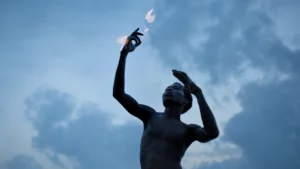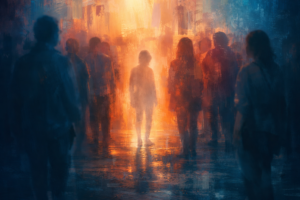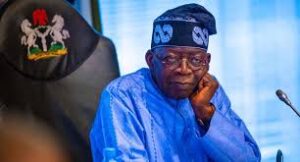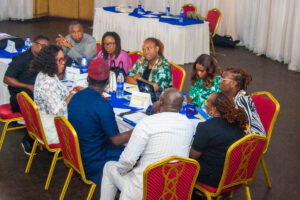
It’s almost impossible to believe it has been five years since #EndSARS. Five years since a generation stood still, not in fear, but in unwavering faith that this country could be better. Five years since the chant “soro soke” became both a resonant call for accountability and a piercing cry of anguish. Yet, in the lingering pain, in the loud anguish of silence that followed, one question still persistently lingers: what have we truly held as memory? And perhaps more critically, what lessons have we learned and applied from such a pivotal moment in our national history?
The memories are, understandably, uneven and deeply personal. For some, it is the haunting, indelible sound of gunfire that pierced the night, accompanied by the cold, unforgiving glare of streetlights illuminating the events of October 2020. This memory is etched with fear, betrayal, and a profound sense of loss. It speaks of a nation’s promise broken, of peaceful protest met with a brutal, disproportionate response that left an open wound in the collective psyche.
For others, the memory is imbued with a different kind of power: the electrifying energy, the profound unity, and the unwavering conviction that, for once, young Nigerians diverse, hopeful, and fiercely determined spoke in one resounding voice against a shared pain. This memory recalls the unprecedented solidarity, the spontaneous organization, and the powerful display of agency from a generation often dismissed or overlooked. It speaks to the hope of a truly representative future, where the voices of the youth are not just heard, but respected and acted upon. It recalls the creative resilience, the innovative use of social media, and the global attention that the movement garnered, demonstrating the potential for genuine, citizen-led change.
I often wonder what profound thoughts and emotions coursed through the hearts and minds of those young Nigerians as the echoes of gunfire filled the night sky, tearing through the fabric of their peaceful assembly. In that instant, beyond the physical danger, they must have questioned their inherent worth not just as individual citizens with fundamental rights, but as integral members of a society that claimed to protect them. They must have wondered if their own country genuinely saw them, recognized their humanity, and acknowledged their legitimate grievances. They must have agonized over whether their collective voices, raised in a plea for justice and reform, truly mattered in the grand scheme of governance. And most agonizingly, they must have contemplated if their vibrant lives, their dreams, their aspirations, meant anything beyond mere statistics and fleeting headlines in the aftermath of such a devastating crackdown. This moment of profound questioning, of deep existential doubt, is a crucial part of the memory that must never be forgotten or dismissed, for it speaks to the core of the relationship between the state and its young citizens.
Many of us are left questioning whether justice will ever truly be served, or if such an expectation is simply naive. We wonder if, within our lifetimes, truth will ever flow freely from the leadership of this place we still stubbornly insist on calling our country-home.
I often find myself returning to the profound prayer embedded in the second verse of our national anthem:
“God of creation, direct our noble cause, guide our leaders right, help our youth the truth to know.”
These words, once a powerful declaration of hope and aspiration, now resonate more as a lamentation. How can one maintain faith when leadership appears so profoundly disconnected from truth, when justice is dispensed as a mere favour rather than an inherent right, and when the act of holding onto memory itself feels fraught with danger?
The #EndSARS movement, despite its inherent imperfections and the inevitable chaos that accompanies any truly organic uprising, stood as one of the purest and most authentic expressions of nationhood in our recent history. It was not merely a protest; it was a profound mirror reflecting our collective potential. It showed us who we could be when united by a shared conviction, rather than divided by superficial differences. It illustrated the true meaning of courage when people, having exhausted their patience with inaction, decided to rise up and act. The process was undeniably messy, as all genuine people-led revolutions are, but it was undeniably real, raw, and deeply rooted in a selfless love for our country. It was a moment when the collective voice of the youth, often dismissed and underestimated, reverberated across the nation, demanding accountability and an end to systemic oppression. The echoes of those protests continue to resonate, reminding us of the power of unity and the enduring fight for a more just and equitable society.
Yet, in many ways, what followed exposed how far our democracy is from being people-centered. The government’s response marked by denial, repression, and the absence of transparent dialogue revealed a democracy that listens selectively and fears its own citizens. It showed institutions more interested in control than service, and leaders more invested in silence than solutions. A people-centered democracy would have listened, not retaliated. It would have seen the protests not as rebellion, but as feedback a desperate plea for reform from the very citizens it claims to serve.
The #EndSARS protests, a watershed moment in Nigeria’s democratic journey, vividly exposed the chasm between the government and its citizens, particularly its youth. The aftermath of the protests, rather than ushering in an era of genuine reform and dialogue, highlighted how distant Nigeria’s democracy remains from being truly people-centered. The government’s immediate and subsequent responses were characterized by a troubling blend of denial, active repression, and a conspicuous absence of transparent, inclusive dialogue. This approach laid bare a democratic system that listens only selectively, seemingly fearful of the very populace it purports to serve. It revealed institutions that prioritize maintaining control over providing service, and a leadership more invested in silence and suppression than in seeking tangible solutions.
The role of civil society organizations (CSOs) during and after the #EndSARS movement, while impactful in many ways, could have been even more coordinated and strategically focused. There was a missed opportunity for CSOs to more effectively channel the raw energy and grievances of the protesters into structured civic engagement. This would have involved actively creating and facilitating spaces for genuine negotiation between the government and citizens, promoting truth-telling mechanisms to address past injustices, and pushing for concrete, measurable reforms many youth said under their breath as they battled the many “you should have,” “ why didn’t you,” “if you had,”. And both parts were and are right in their own right as most of this reflections were self identified lapse, I think what its become, The nurturing potent, youthful energy to elders experience might transform the sustainable template for responsive governance, a model where the government learns to genuinely act with its citizens, collaborating on solutions, rather than perpetuating an adversarial relationship where it acts against them.
Five years on from those pivotal protests, the lessons embedded in the #EndSARS experience remain not just relevant, but critically urgent for the survival and strengthening of Nigerian democracy. The government must internalize the fundamental truth that power exercised without genuine listening inevitably corrodes its own legitimacy. It must also recognize that young people are not an inherent threat to democracy; rather, their active engagement, their demands for accountability, and their aspirations for a better future are, in fact, the very proof and promise of a vibrant democratic system. Simultaneously, citizens, especially the youth, must recognize that democracy is not merely a performative act of casting ballots during elections every few years. It is, instead, a continuous, daily duty of active engagement. To truly defend and uphold democracy requires a steadfast commitment to remembering past injustices, to speaking up against oppression and misgovernance, to holding those in power accountable for their actions, and to staying involved in the civic space – even, and especially, when the initial passion wanes and fatigue inevitably sets in. This sustained engagement is the bedrock upon which a truly people-centered, responsive, and legitimate democracy can be built.
And so yet Five years later, the wounds remain unhealed, the anger unrestrained, and the questions unanswered. Families, shattered by loss, continue their silent mourning, their grief a heavy shroud. Communities bear the unspoken weight of that fateful day, a collective trauma etched into their very fabric. And the nation, with its often-observed amnesia, drifts onward, as if nothing profound or tragic had ever transpired.
But it did happen. And its occurrence should forever be etched in our collective memory as an egregious wrong, a stark reminder of what should never be repeated.
To forget is to grant injustice the power to rewrite history, to distort the truth, and to silence the voices of the fallen. To move on too swiftly, to bypass the necessary process of remembrance and reckoning, is to implicitly sanction its recurrence. Remembering #EndSARS is not an act of reliving trauma for the sake of suffering; it is an imperative to preserve truth, to safeguard the integrity of our shared past. It is about clutching onto that audacious belief, that flicker of hope, which once allowed us to envision a Nigeria far greater, far more just, than it has been permitted to become. It is a testament to the enduring human spirit that, even in the face of immense adversity, yearns for progress and accountability.
So, as we mark this somber five-year anniversary, let our reflections transcend mere despair and instead forge a steadfast resolve. May we never cease to pose the difficult, uncomfortable questions that demand honest answers. May we steadfastly demand truth, defend the sanctity of memory against all attempts to erase or distort it, and insist upon a democracy that is truly responsive to the will and welfare of its people. For even if the wheels of justice turn slowly, and its arrival is delayed, the flame of memory must never be extinguished. It is the fuel that drives the pursuit of accountability, the foundation upon which a more equitable future can be built.
And one day, when we gather to sing our national anthem again, perhaps, just perhaps, our voices will not merely be a prayer for an idealized future, a hopeful plea for what might one day be. Instead, they will rise in gratitude, a chorus of appreciation for what has finally become, a nation that remembers, that learns, and that has, at long last, truly healed.





